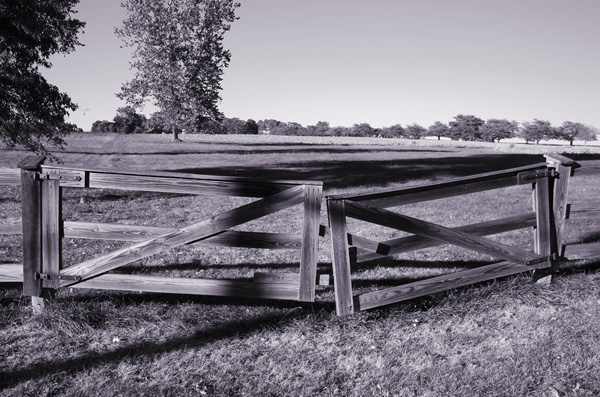Boundaries: Good Fences, Good Neighbors
by: David A Morris, LCSW

It may be a good time to start repairing your relationship boundaries.
When I think about setting emotional and physical boundaries in relationships I am often reminded of two examples. The first is a famous line from Robert Frost’s poem Mending Wall, “Good fences make good neighbors”, and the second is a microscopic slide of cells from my high school biology class.
Frost wasn’t just speaking about building fences to outline personal property, he wanted to convey the value of having distinct personal boundaries that are identifiable. Boundaries are healthy limits we set between ourselves and other people. They help to define who we are and who we are not, what makes us comfortable and what upsets us. As many of the books have said, it is where we end and others begin.
Nature has shown this to be true. When you look at a closeup of skin cells or plant cells, you’ll notice they are intrinsically bonded to each other via the cell walls. But the walls do not impede upon the cell next to them. They don’t violate the physical integrity of each cell. If this did happen it would be the warning signs that the living thing was deteriorating and/or dying.

Nature has shown us the value of distinct boundaries.
Relationships slowly start to deteriorate in the same way as your boundaries are crossed, violated, and each partner slowly loses their own identifiable traits. In a good relationship, both partners will respect each others boundaries. If your partner continues to violate and cross your boundaries then respect slowly erodes and identities become blurry.
Setting and maintaining healthy boundaries can be a challenge for anyone. It is important to understand who you are and what you need. Then make your needs known by establishing clear boundary lines. Enforce those boundaries through typical consequences in which you take action.
Here are some good reminders for setting healthy boundaries in your relationships:
Become Self-Aware
Notice when your opinion is different from others. Jot down times when you have changed your opinion to either avoid conflict or to get acceptance. Start examining the things you like, your personality traits, your talents, and your natural abilities.
Be Enthused Not Obligated
Some obligations are necessary but not all. Notice the actions you take that are obligations and judge whether they are necessary or due to another person’s expectations. Honor your ideas and desires by acting on your enthusiasm. If your life is going to be busy, make it busy with positive opportunities that build you up as opposed to obligations that sap you of energy.
Find Collaborative Relationships
If you have too many relationships that take your energy, require more giving than receiving, and have crossed your limits, then set new limits on them. If you can’t meet, don’t meet. If you can’t talk, don’t talk. If people cannot respect the limits you set for yourself then they are not respecting you.
It is easy to write these down in a blog but harder to enact them in your life. If you are having trouble getting started, setting limits, and fighting to defend them, then give us a call. The therapists at New Directions have years of experience and would love to walk along side of you and guide you during this time.
